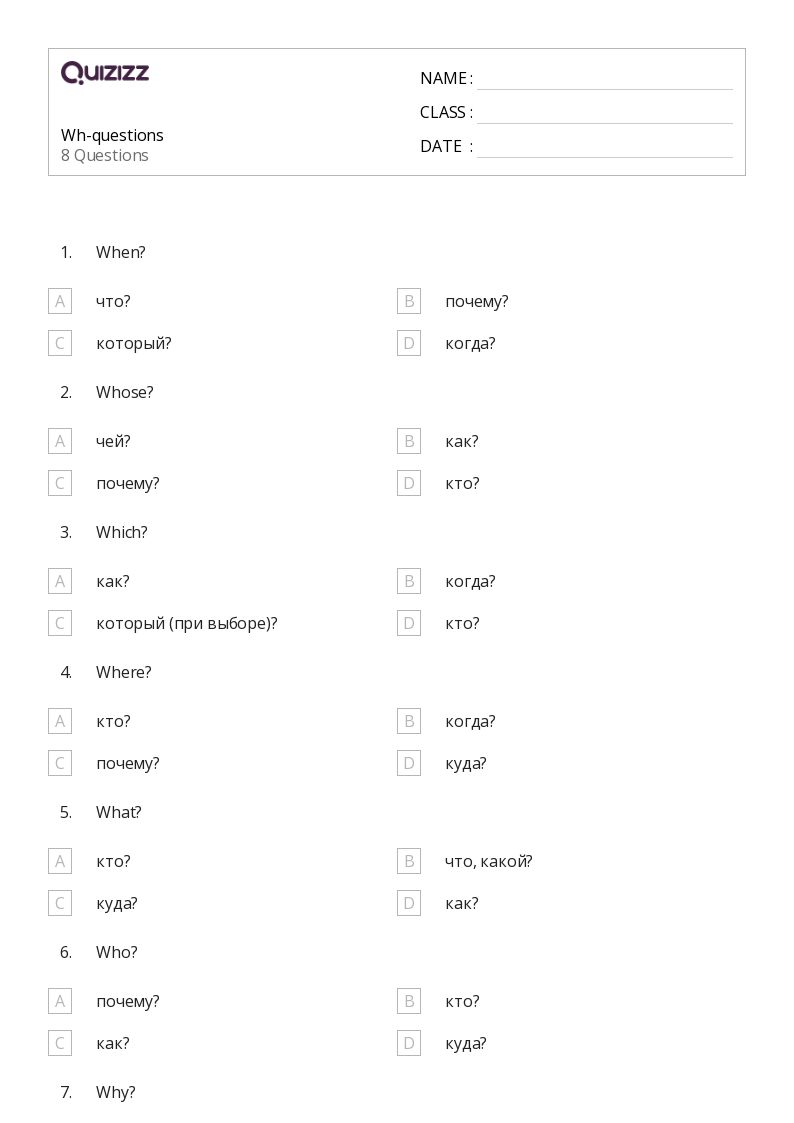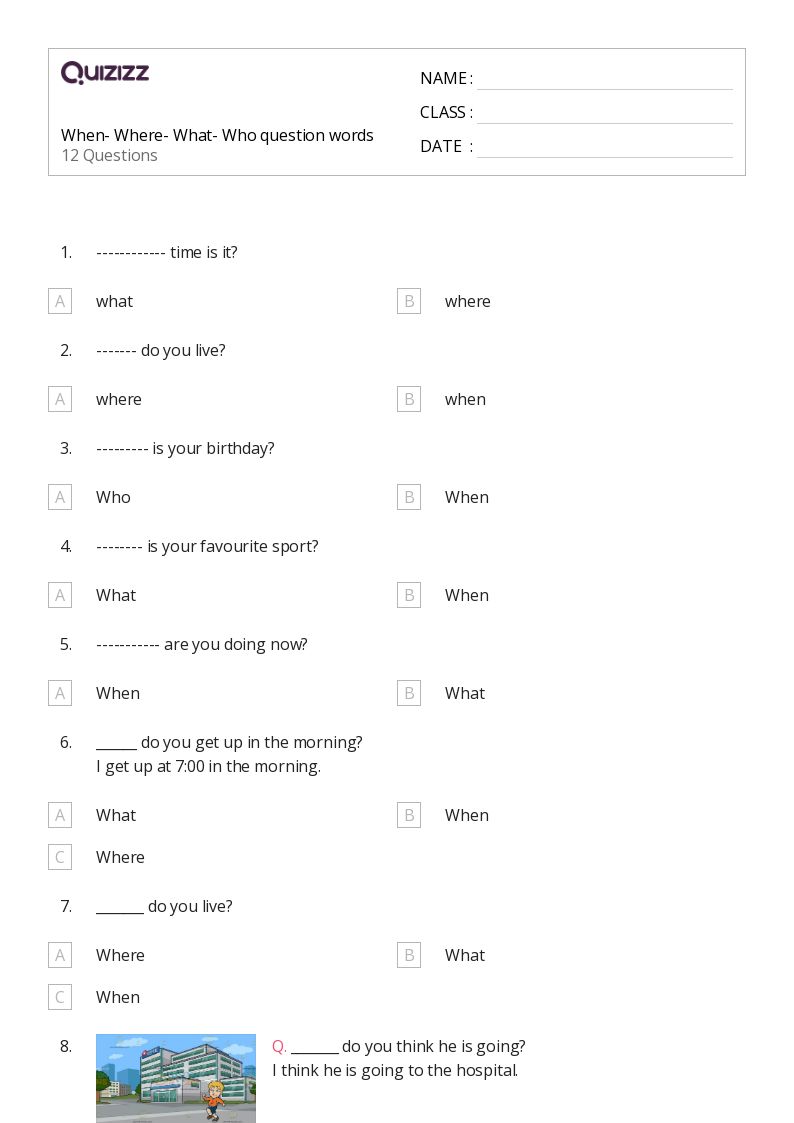
20 Q
1st - 2nd

10 Q
2nd

16 Q
2nd - 6th

7 Q
2nd - 6th

8 Q
2nd

11 Q
2nd

20 Q
2nd - 11th

10 Q
2nd

14 Q
2nd

10 Q
2nd - 3rd

15 Q
2nd - 12th

8 Q
2nd

20 Q
2nd

20 Q
1st - 2nd

10 Q
2nd

12 Q
2nd - 3rd

20 Q
2nd - Uni

12 Q
2nd - 3rd

10 Q
2nd - 3rd

10 Q
1st - 2nd

23 Q
2nd

18 Q
2nd - 4th

10 Q
2nd

10 Q
2nd - 5th
Explore Who What When Where Why Questions Worksheets by Grades
Explore Other Subject Worksheets for year 2
Explore printable Who What When Where Why Questions worksheets for 2nd Year
Who What When Where Why Questions worksheets for Year 2 are essential tools for teachers to help their students develop strong reading and writing skills. These worksheets focus on teaching students to ask and answer the 5W questions (who, what, when, where, and why) while engaging with a text. By incorporating these worksheets into their lesson plans, teachers can effectively teach Reading Comprehension Strategies to their Year 2 students. These worksheets not only improve students' reading abilities but also enhance their writing skills, as they learn to identify and include essential information in their own work. As a result, students become more confident and proficient in both reading and writing, setting them up for success in their academic journey. Who What When Where Why Questions worksheets for Year 2 are a valuable resource for teachers who want to see their students excel in reading and writing.
Quizizz is an excellent platform that offers a variety of educational resources, including Who What When Where Why Questions worksheets for Year 2. Teachers can use Quizizz to create interactive quizzes and games that help students practice their Reading Comprehension Strategies in a fun and engaging way. In addition to worksheets, Quizizz provides teachers with a plethora of other offerings, such as customizable quizzes, flashcards, and reports to track student progress. This platform allows teachers to easily differentiate instruction, catering to the diverse needs of their Year 2 students. By incorporating Quizizz into their teaching strategies, educators can create a dynamic learning environment that fosters growth in reading and writing skills for their students.
